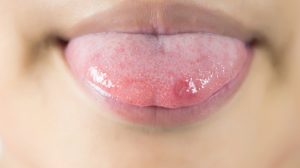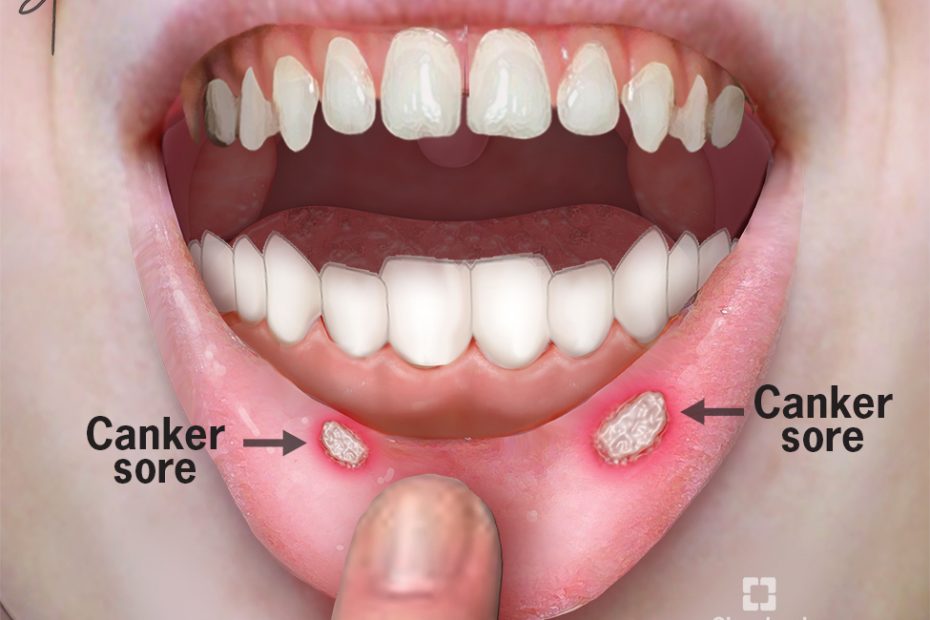Mouth ulcers also known as canker sores are painful small sores inside the mouth, on the tongue, gums and even the esophagus. They can be such a nuisance because they make brushing the teeth and eating painful. They are different from cold sores which are red painful blisters that occur around the mouth and on the lips and are often associated with an illness or stress. It is possible to have more than one mouth ulcer at a time with differing sizes. It is not contagious and the exact cause is unknown but there are several factors that can increase it’s occurrence like;
- Smoking
- Repeatedly biting inside the cheeks
- Acidic and spicy foods
- Genetics
- Hormonal changes during pregnancy, menstruation and menopause
- Using toothbrush with bristles that are too hard
- Nutritional deficiencies
Mouth ulcers vary in size and should heal within 2 weeks. Larger ulcers however can take up to 3 weeks. If the ulcer extends beyond this period, it is advisable to visit your dentist. Occasionally, infections like herpes and blood disorders like anemia can cause mouth ulcers. It is not the same as cancer of the mouth. Ulcers associated with cancer of the mouth are usually not painful.

Image credit: shutterstock
TREATMENT
Mouth ulcers usually don’t need any treatment but due to the discomfort associated with it, you can speed up healing by using the following;
- Antimicrobial mouthwash
- Medications like corticosteroid lozenges
- Ice cubes ( applied directly on the sore)
- Nutritional supplements like folic acid and vitamin B12
- Saltwater to rinse the mouth
NB: These medications may not work for everyone so it is advisable to visit your dentist. Also corticosteroid lozenges should not be used for children under the age of 12 and antimicrobial mouthwash should not be used for children under 2 years
HOW TO PREVENT MOUTH ULCERS
- Avoid mouthwashes and toothpastes that contain sodium lauryl sulfate to prevent irritation
- Avoid food that irritates your mouth
- Use toothbrush with mild bristles
- Chew gently and do not talk while chewing to avoid biting your cheeks
WHEN SHOULD YOU SEE A DOCTOR?
Though mouth ulcers heal on their own within 1- 2 weeks, there are occasions when it is advisable to seek medical attention as mouth ulcers can be a sign of other conditions like diabetes mellitus, immune deficiency, and Celiac disease. You should see a doctor if;
- The sores are not painful
- The sores last more than 3 weeks
- Sores extend to the lips
- You keep getting new sores before the old one heals
- The sores become more painful even after using medications as this could be a sign of an infection.

Oyewole Ibukun is currently a Medical student of Olabisi Onabanjo University. She has a passion for seeking knowledge with a creative, detail oriented and analytical mindset.

